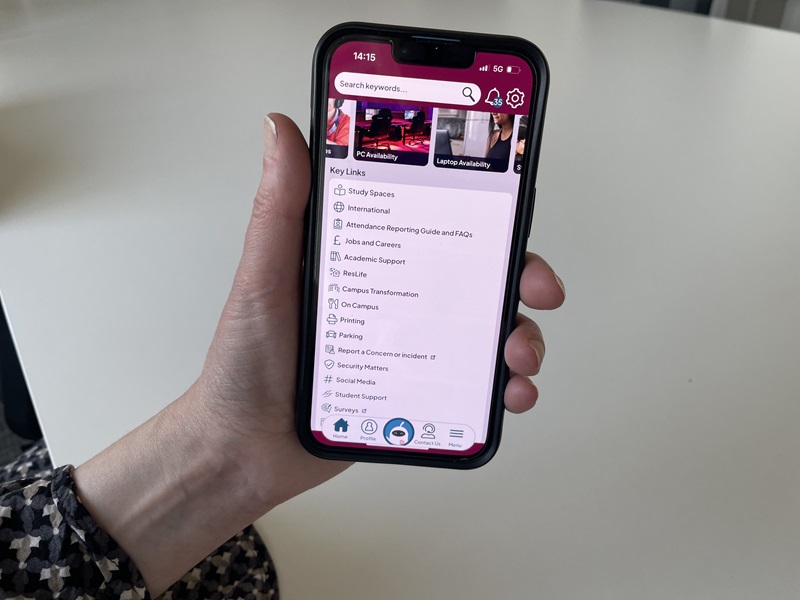An app used by University of Staffordshire students is to form part of a trial on the impact of wellbeing interventions.

Students will receive notifications via the Beacon app when their engagement dips below a threshold.
At the University of Staffordshire, we are particularly excited about expanding the use of Beacon to nudge students towards the support they need. By combining learning analytics with personalisation, we hope to make a tangible impact for students.
The Beacon app will nudge students towards accessing support services by using push notifications. The notifications will signpost to wellbeing and careers support and will be prompted when students dip below an engagement threshold calculated by learning analytics.
University of Staffordshire is one of three higher education providers selected to run randomised controlled trials on a wellbeing intervention.
TASO, an independent hub which aims to eliminate equality gaps, has commissioned The Policy Institute at Kings College London to evaluate what works and whether these interventions have a positive impact on student wellbeing, compared to students who don’t receive the interventions.
Christina Matthews, Executive Director of Students and Academic Services at University of Staffordshire, said: "We are thrilled to be working with TASO and The Policy Institute at King’s College London on this project to explore innovative ways to support student wellbeing through data-driven interventions.
“At the University of Staffordshire, we are particularly excited about expanding the use of Beacon to nudge students towards the support they need. By combining learning analytics with personalisation, we hope to make a tangible impact for students. This collaboration will provide valuable insights that can shape future practices across the higher education sector."
TASO has been awarded funding for this project from the Evaluation Accelerator Fund (EAF). The EAF is administered by the Cabinet Office Evaluation Task Force.
The project will provide robust evidence on the effectiveness of wellbeing interventions prompted by analytics in HE. TASO will share these findings more widely with the HE sector, and the final reports will be published in spring/summer 2025.